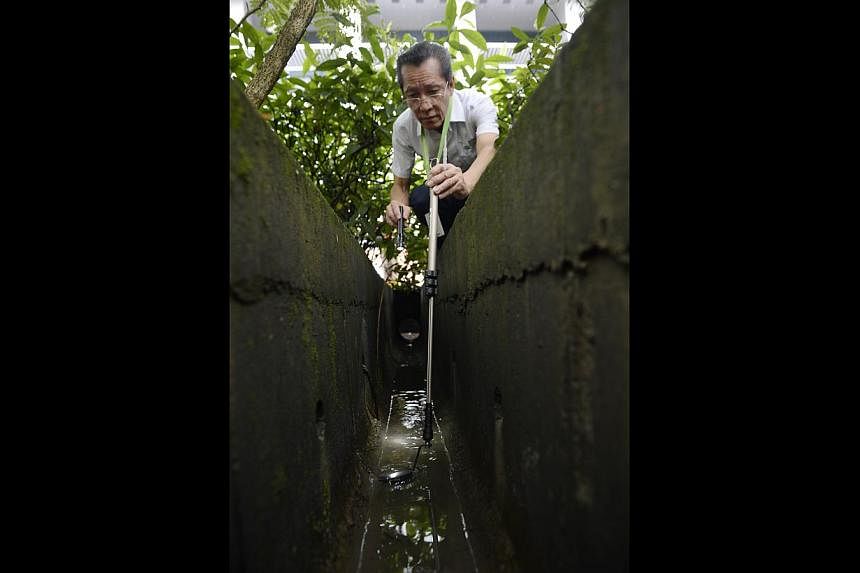This article was first published on Jan 30, 2015
Finding out whether you have been infected with dengue could soon be as easy as spitting into a rapid test kit.
Scientists from the Institute of Bioengineering and Nanotechnology (IBN) have developed a kit which could in theory detect if people have diseases such as HIV and dengue, using just a sample of their saliva.
The kit can be loaded with different substances called antigens to detect different types of antibodies found in the various diseases.
The IBN team's laboratory tests, for example, concentrated on a specific antibody found in people with secondary dengue infections.
These are people who had previously been infected with other serotypes of the dengue virus.
It is important to be able to detect such cases quickly because when people are infected with dengue for the second or subsequent time, they stand a higher risk of developing the severe and possibly fatal dengue haemorrhagic fever.
In the laboratory tests, the kit was able to detect the antibody within 20 minutes.
"The ability to differentiate between primary and secondary dengue infections makes it a valuable early diagnosis tool that will help to ensure timely treatment and proper care of patients," said IBN executive director Jackie Ying.
Currently, the diagnosis for many diseases is done through blood samples.
Saliva can be collected from patients more easily and painlessly, but the diseases' antibodies are typically found in lower concentrations in saliva compared to those in blood.
Saliva also contains other substances that may interfere with tests. The IBN researchers developed a novel stacking design for their test kit that strips out these extraneous substances.
To make sure the test would be useful, they also tested it on saliva samples spiked with different concentrations of the antibody found in the secondary dengue infections.
The researchers hope to make the device as easy to use as over-the-counter pregnancy or fertility test kits, although they noted that the right antigen would have to be found for each disease.
The team is also investigating the use of other common fluid samples, such as blood and urine, for other rapid, high-sensitivity test kits.
IBN, which is under the Agency for Science, Technology and Research, is currently further developing the kit for commercialisation, partly by optimising its design for large-scale production.
The institute is also collaborating with the Japan-based firm Arkray, which develops test equipment for medical professionals.
In 2013, Arkray opened its first Asian research centre outside Japan in IBN, with a five-year investment of $9.1 million. The research centre is focused on creating detection kits for infectious diseases based on IBN's research.

